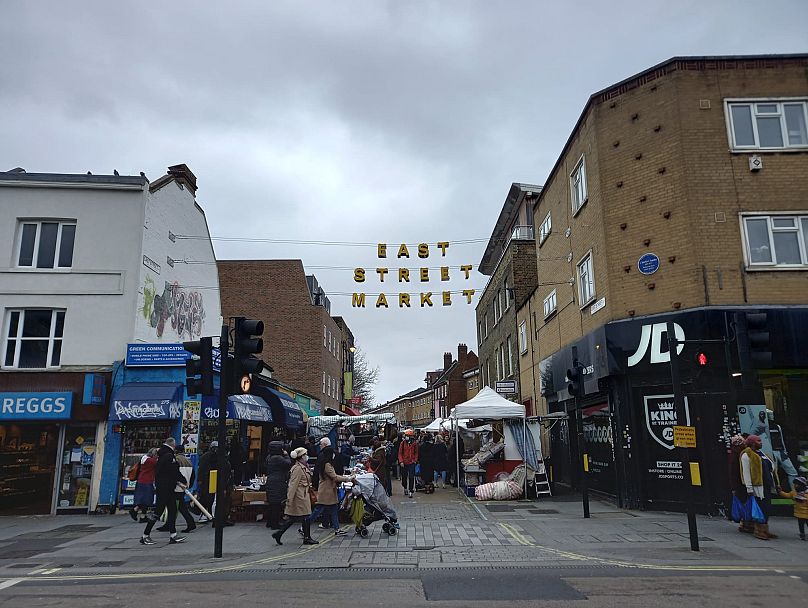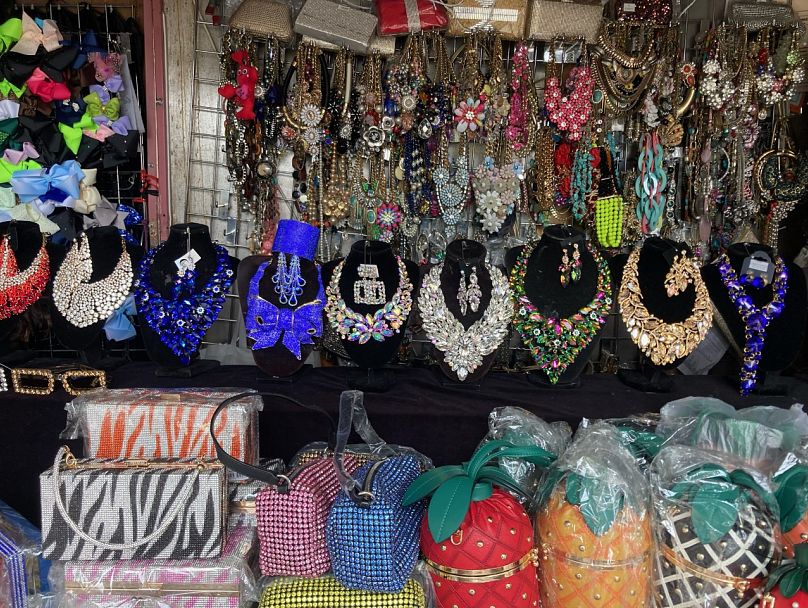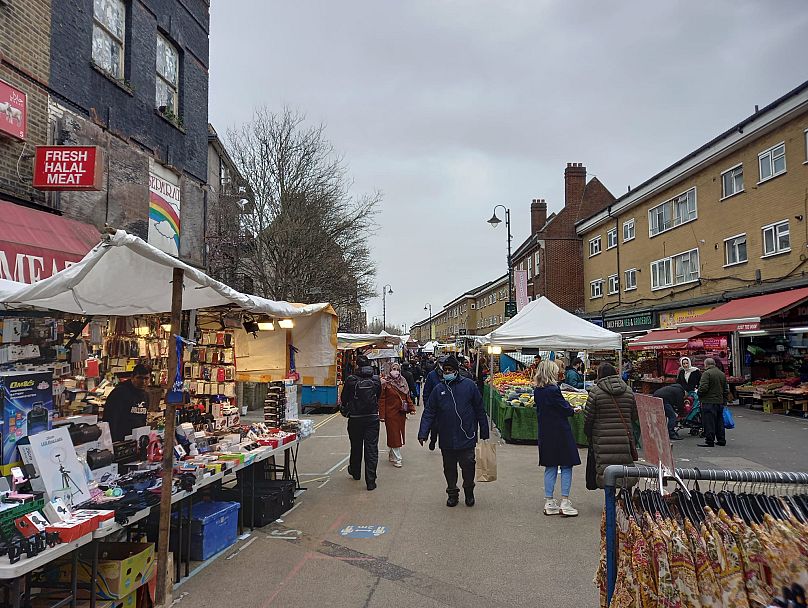London's traditional street markets - the beating heart of many communities in the British capital - are being rapidly replaced with shopping malls, offices and luxury housing.
Bright and early last Saturday, Tina Daley set up her stall at East Street Market in London.
She stood for 12 hours in the cold drizzle, only to come home with a single pound in her pocket.
One pound (€1.13) for a full day's work.
“If I went on the street begging, I would earn much much more,” she told Euronews. “It's ludicrous. But you know, when you've got nothing else, what do you do? You have to keep battling on.”
East Street Market is one of London's oldest, largest and busiest markets. Sitting in the borough of Southwark, it's a historic working-class spot, selling a variety of foods, clothes and other essentials to the area’s diverse, yet deprived, population.
But it's under threat.
Despite footfall remaining constant and “good community support”, Tina claims the council is killing off the market, purported to be the birthplace of Charlie Chaplin and featuring in the open sequence of the hit British sitcom ‘Only Fools and Horses’.
Three weeks ago traders were told fees and chargers could be going up once again – the second time since the pandemic, which itself battered their businesses.
“We can't afford it. Traders are willing to work but they just can't afford to… Everyone's leaving because it's so expensive,” said Tina, Chair of East Street Market.
The once bustling marketplace used to have 260 pitches but has since dwindled to 80.
‘Managed decline’
Part of East Street’s demise is "deliberate neglect" by local authorities, claims Tina. “The council’s not really interested in the market. There’s no investment, no advertising, no monitoring.”
“It seems like they want the market to die,” she added.
And East Street is not an exception.
Big question marks hang over the future of traditional street markets across central London, such as Hackney’s Ridley Road, Queen’s in Newham and Tower Hamlets Chrisp Street Market.
Many others are long gone.
Saif Osmani, who has campaigned for decades to save Queen’s Market from redevelopment, says they are being “pushed aside” by property developers, backed by “international financial capital from God knows where”.
“It's a land grab,” he told Euronews. “In these highly pressured areas, which are seeing rampant gentrification, markets are intentionally run down to privatise and sell off what is a public space.”
“Developers are making millions of pounds off the backs of communities,” Osmani continued. “We’ve got an extremely successful market that currently feeds thousands of families across London that is being deliberately destroyed so nobody feels any attachment to it.”
East Street Market is a stone’s throw from Elephant and Castle, an area that has experienced breakneck regeneration in recent years.
The elephant bingo hall – an important cultural centre and meeting point for the area’s Latin American community – was controversially demolished in 2021 to make way for nearly 18,000 square metres of shops, workspace and homes.
‘Development that benefits all’
Osmani, whose family have shopped at Queen’s for three generations, says campaigners are not against development, however.
“If managed well, it can work in certain areas,” he told Euronews. “What we’re against is the social cleansing of communities, who are never truly given a say over what happens”.
Under planning rules, local communities must be consulted before any major development.
However, Osmani said people's concerns usually "fell on deaf ears", dismissing the consultation as an opportunity for the council to take photos of black and Asian people to claim they've been consulted.
"It's poverty porn at its worst. No wonder people don't want to engage."
In the meantime, markets continue to be a crucial lifeline for local communities.
Chair of East Street Tina points out that markets like hers are vital for people on lower incomes, offering cheaper food, while keeping pressure on local supermarkets to keep prices down.
“If we weren't here, supermarkets would be charging the community a hell of a lot more,” she told Euronews. “You need competition to keep the big boys at bay.”
One in seven households in Southwark earned less than £15,000 in 2021, according to council figures. Even before the cost of living began to bite, it was the sixth worst borough for child poverty in Britain.
More than this, markets are an important part of an area’s social fabric, helping to stitch communities together.
“A lot of people look forward to coming down and having a little chat,” said Tina. “Even if it lasts for ten minutes, it can make someone's day.”
'Class war'
Behind the scenes, Osmani said larger structural forces were at play.
“There's a class war happening against a predominantly lower class, black and Asian demographic. London claims it is a global city for minorities and yet we’re being used as fodder for someone’s financial gain.”
“Luxury flats can go anywhere. Why aren't they plonking them in richer, white areas – nobody around here can afford them anyway.”
He urged the local authorities to better protect London’s street markets and consider the needs of local people.
“A local policy needs to be in place to ensure that they're safeguarded not just for people who shop there, but as places of culture, heritage, and also, most importantly, social interaction, which is really important across generations.”
“These are spaces of value. They have to be retained and protected.”
Southwark Council and the Greater London Authority have been approached for comment.














